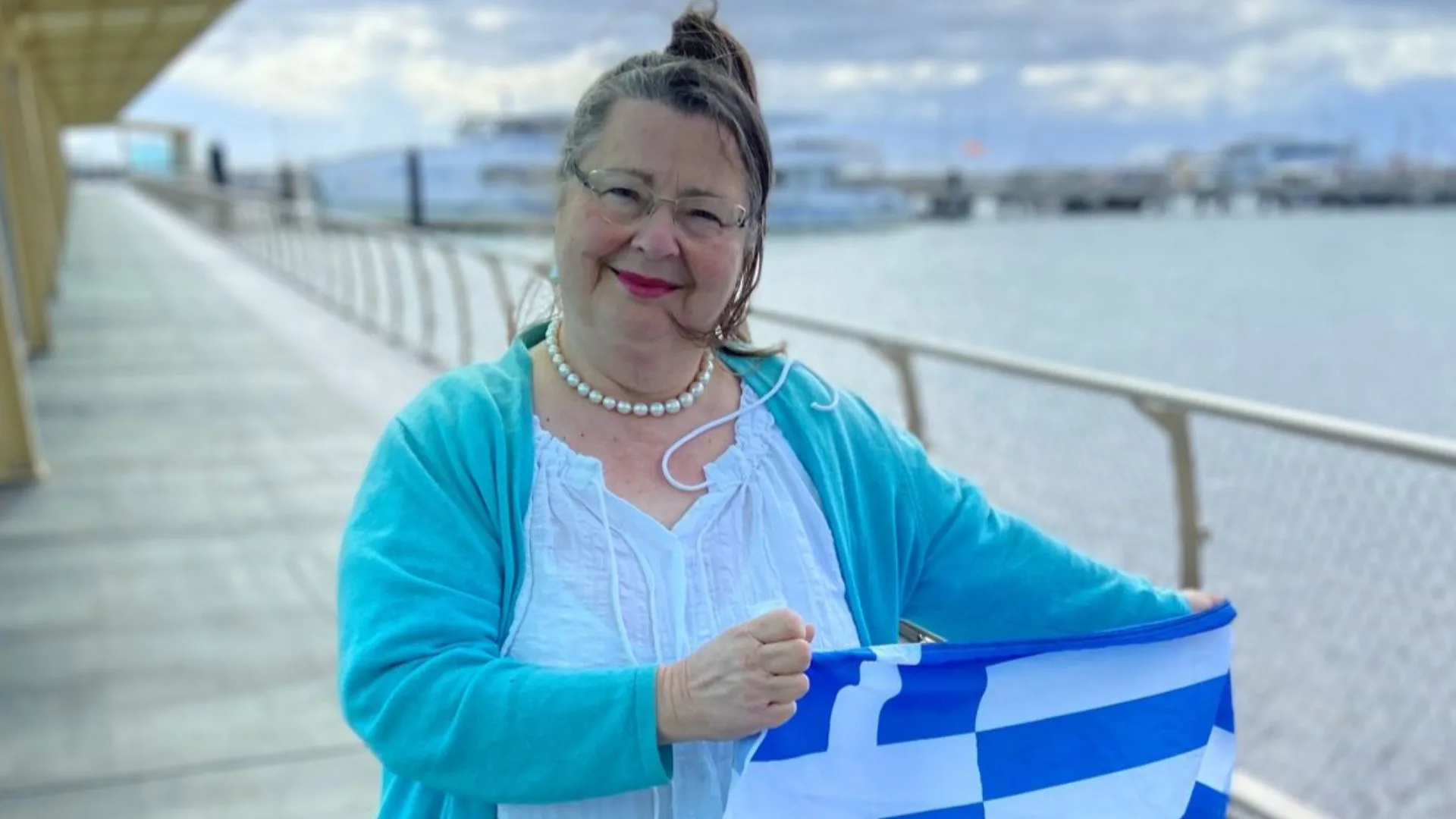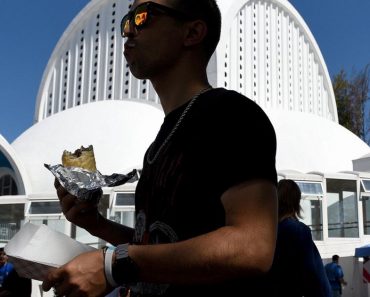When Evelyn Antae Boatenk went viral earlier this year for sharing some of the Greek dishes she perfected growing up on the Mediterranean peninsula, she was more than a little surprised by the feedback—not because of her food, but because she’s Black.
“Everyone was like, ‘Oh, my God! You’re Black! That cannot be possible!’” Boatenk tells BET.com. “And that’s when everything started.”
To be fair, Boatenk admits the reaction wasn’t entirely unreasonable. A 2011 study estimated that there were fewer than 30,000 Black citizens in Greece, most of them first-generation immigrants from African countries. In a country of over 10 million people, that’s a small community. Boatenk grew up as “the only” in her Thessaloniki neighborhood, raised by a Ghanaian father and a Greek-Polish mother. Her childhood, she says, wasn’t what most people might assume.
“Growing up in the ’90s,” the now 33-year-old says, “when everyone was supposedly ‘more racist,’ I don’t recall any major racist stuff—just the usual schoolyard nonsense. I was always popular, so I was never off in a corner.” Her mother, she adds, made a point of celebrating her heritage. “I grew up without my father, so my mom worked hard to make me proud of being African. She even learned African recipes so I could embrace my roots.”
If you’ve visited Greece—a longtime favorite of Black travelers—or even just seen “My Big Fat Greek Wedding,” you know that Greeks, like Black folks, take food seriously. Family meals are sacred, and no gathering is complete without specific dishes. “My grandma cooked Polish food, like pierogies, while my grandfather was super Greek, making things like moussaka and Greek meatballs,” Boatenk recalls. “In Greece, we never eat out; everything is homemade. We cooked every day—lunch, dinner, everything. We were eating 24/7, so I probably inherited this passion for cooking.”
Now, Boatenk is turning that passion into profit and shaking up the Greek food scene along the way. After stints as a bottle girl in Mykonos and later in Miami, she’s now based in New York—“as much as a Sagittarius can settle,” she jokes—and is on a mission to serve authentic Greek food. Her goal: change what Americans think they know about Greek cuisine. She laughs at the U.S. obsession with hummus (“We don’t eat that!”) and scoffs at lettuce-filled “Greek salads.”
“My God, don’t get me started on that!” she says in her thick Greek accent, which has become part of her charm online. “People here try to Americanize dishes. Greek salad with lettuce? Never! And hummus? I’d never even had so much hummus in my life until I moved to the U.S.!”
Boatenk’s vision for shaking things up is centered on Sagapo, her passion project. Sagapo, which means “I love you” in Greek, represents hospitality and deep connection. While many expect her to open a restaurant or launch a food truck, Boatenk is taking a different path. “Everyone’s waiting for my restaurant to open,” she says, “but I don’t have a restaurant, and I don’t have a truck. Opening a restaurant in New York takes serious money, so I started hosting secret, invite-only pop-up dinners.”
Those family-style gatherings of up to 25 guests have already sparked buzz, with a growing waitlist and followers from across the country begging her to bring Sagapo to their cities.
Her menus highlight dishes like kokkinisto—a rich beef stew served over fries drenched in sauce—and her signature moussaka made with goat’s milk and butter. Her Ghanaian roots are also reflected in her cooking. “We have spicy stews, spicy dips—those flavors coexist with my Greek background,” she says. “It’s a worldwide palate.”
While Boatenk’s dishes are a world apart from Black American cuisine, the vibe is familiar. “I wanted to recreate the experience of what we actually eat at family dinners and Sunday lunches,” she says. “It’s soul food.”







